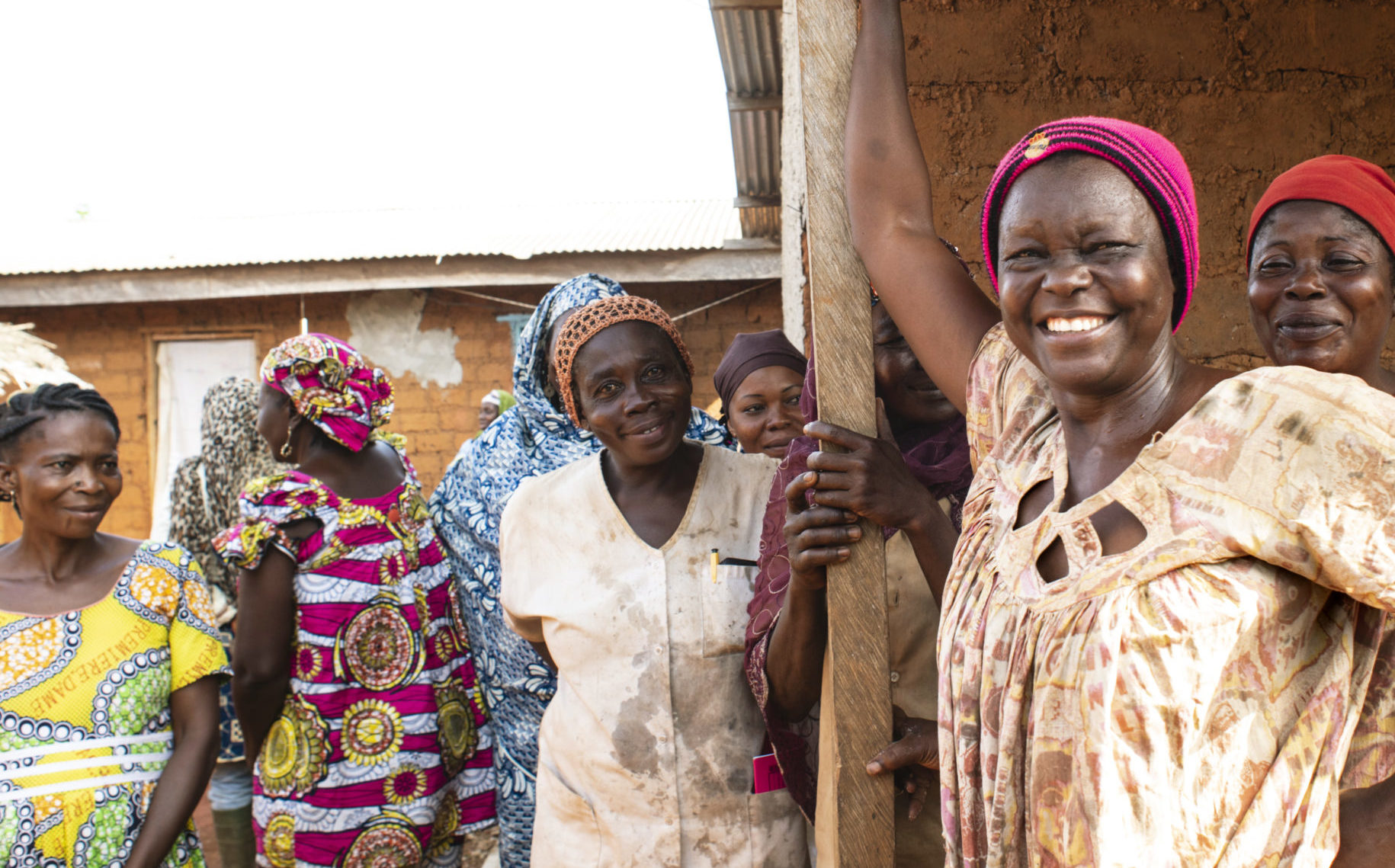Women, mothers become ‘agents of community transformation’ in Cameroon
Story

Odette Kamanzi says it was her heart – and the women she worked with on past placements – that called her back to Cameroon for her third volunteer placement.
“I always wondered what all the women were doing and what’s become of them during the past two years,” says Odette, who returned to Cameroon in November 2021 to volunteer as a gender advisor.
Odette has now had a few months to settle into her work in Cameroon and to re-connect with some of the women she worked with years ago. She has been thrilled to see many of them thriving and running their own businesses, supported by the work they did with her in women’s empowerment workshops.
“We are in contact and this is what makes the work so exciting,” says Odette, the first Canadian volunteer to leave on placement since the COVID-19 pandemic began. “For one woman I spoke with, Christine, there really was a big change and a transformation for her and her loved ones. She has a plantain field and she has increased her production and started making and selling products made from plantains. Christine now has a reliable income to support her family, and she reaches out to other women, as well.”
In her current placement, Odette is working with Queens for Peace, a group supported by Cuso International’s partner organization Women in Alternative Action (WAA), which brings together the queens of Cameroon – spouses to chiefs and kings – to combat gender-based violence and child marriage. The female community leaders are well-respected in Cameroon society and when they speak out about controversial issues and cultural practices, people listen.
This month, Odette will offer training programs with Queens for Peace to provide context and awareness for the issue of child marriage and a comprehensive, easy-to-use toolkit for the queens to take with them and implement in their own communities.
“This is an excellent initiative because it takes a peer-driven approach to change. You just need to provide mothers with the tools necessary to solve the problem of child marriage, especially during this time of crisis (the pandemic),” says Odette. “Many girls are being married off, so this is a good time to react … We need to take action now.”
Odette says that over the course of this placement, she will also help to create an evaluation system to use over the longer-term, to measure the changes that have taken place in the communities she’s working in.
Overall, the highlight of doing this work for Odette is the transformation she sees after women and groups of women leaders have had the opportunity to learn more and gain awareness about the harmful impacts of child marriage.
“We help to make each individual an agent of community transformation. We help to make the future better for these girls.”